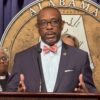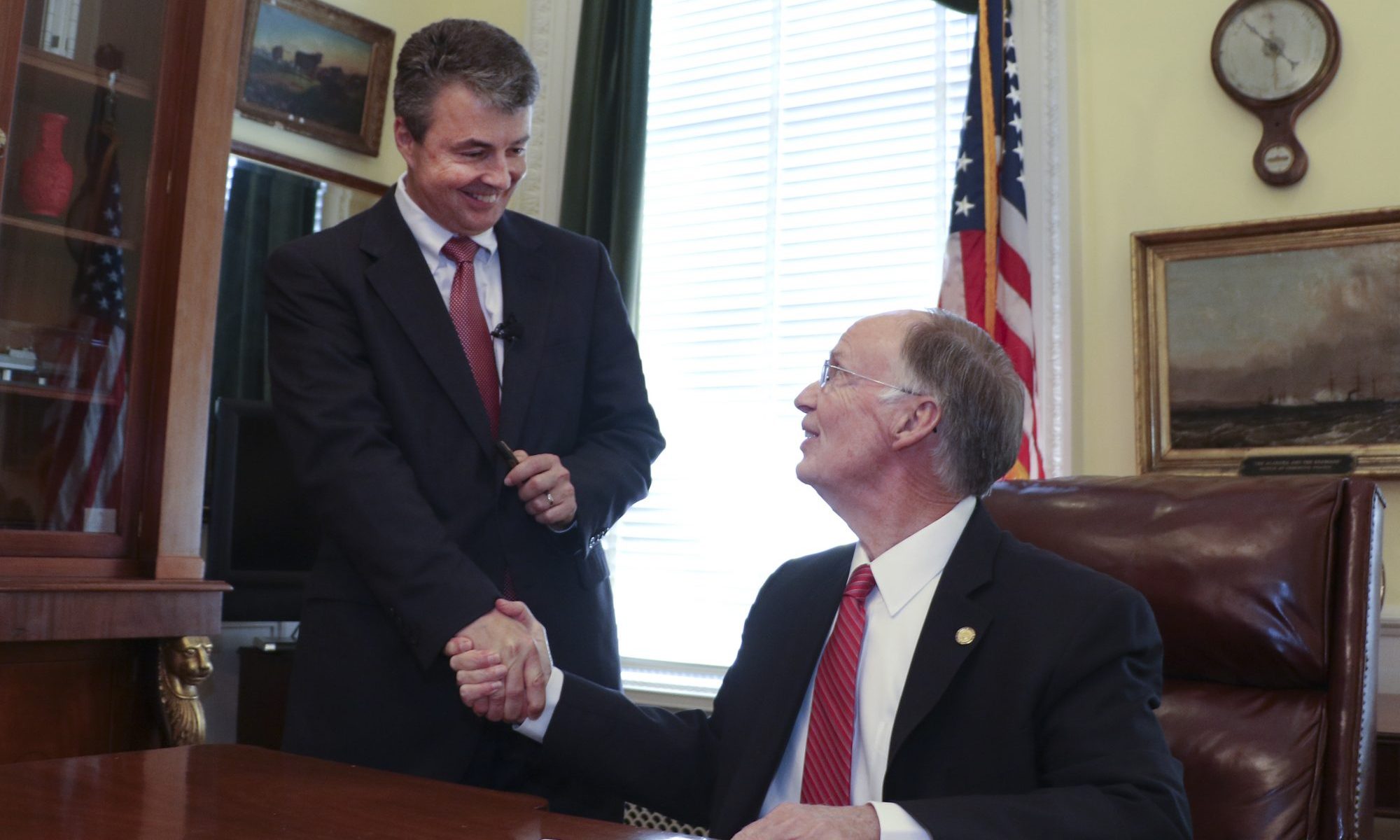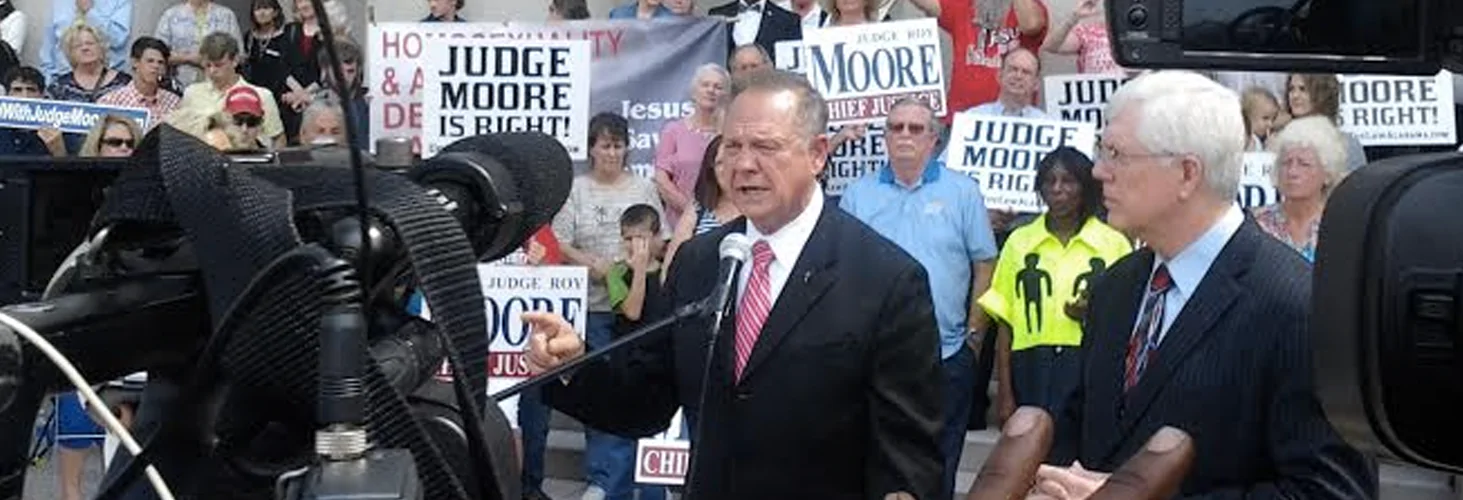By Bill Britt
Alabama Political Reporter
MONTGOMERY—The debate over Title Loans and Payday Lending is heating up in Alabama.
Some call it “loan sharking,” others call it a “helping hand.”
Whatever side, an unusual thing is happening in the State Legislature and it is called bi-partisanship.
On Wednesday, Jeremy King, spokesperson for Governor Robert Bentley said, “The problem of predatory payday and title lending has been an issue in Alabama for a number of years. The Governor is supportive of bi-partisan efforts currently underway by legislators, and encourages the members to work together with relevant stakeholders to find a reasonable solution.”
HB462, sponsored by Representative Rod Scott (D-Fairfield) and co-sponsored by a host of Republicans and Democrats, is a bill that seeks to restructure the interest rates charged by these lending institutions and find a reasonable bi-partisan solution.
The Alabama Title Loan Act separates the automobile title loans from pawn transactions, and seeks to cap the maximum amount of interest that title loans lenders may charge their customers at 36 percent.
“The time is now that we reform this outrageous practice. The allowable annual interest charged by auto title lenders is 300 percent. This allowable rate of 300 percent is nothing but legalized loansharking,” said Representative Rod Scott.
Charles Hunter, VP of Legal Affairs at Triton Management Group that represents Tile Lenders, doesn’t agree with Representative Scott’s opinion.
“What is unique about our business is what they call an interest rate, which is what we call a fee. That is our entire gross margin.”
Hunter says that unlike banks or even retailers, the fees that title lenders charge is the total of their gross margin.
“Our maximum [fee or APR] by law is 25 percent, most are around 10 percent on a sliding scale as the amount goes up,” said Hunter.
According to Kristin Arnold in an article on Bankrate.com, she wrote, “Title loans usually carry an interest rate of about 25 percent for 30 days. And, if you can’t pay off the loan at the end of 30 days, it will roll over with the same interest rate. That works out to about 300 percent annually. A $500 loan on the first of the month turns into a $625 debt at the end of the month.”
Under the law Scott is proposing, 36 percent would be the maximum total interest allowed to be charged.
Hunter says this would translate to about 3 percent gross margin for the title loans companies. “No one can operate at such a low margin,” said Hunter.
Stephen Stetson, policy analyst at Alabama Arise, has little sympathy for the title lenders. “If 36 percent interest is not enough, then perhaps they need to look at a different business model, he said.
Alabama Arise says its goal is, “To promote state and national policies that improve the lives of low-income Alabamians.”
Currently, there is a competing bill before the legislature that makes some changes to the title lending business, but Stetson believes this bill does not address the real problem. His says the competing bill is, “…like if smoke was coming out from your car and you stopped and changed the tire.”
Stetson says, “These loans bankrupt people. They don’t become better off for the loan, they become poorer.”
Bernard Hargrove, a young African-American who works for the company Title Cash, said, “We try to get people the money they need when they can’t get it anywhere else.”
Hargrove said he became employed in the title loan business after he needed and received a loan on his car.
Representative Scott, who is of African-American decent and holds a BA in Economics from Yale University and a MBA from the Amos Tuck School of Business Administration at Dartmouth College, says that these “predatory lending practices leave people stranded without transportation, and leave people in loans for months or years before the principal is paid back which strips our communities of wealth.”
According to a 2012 study conducted by the Center for Financial Services Innovation individuals, the people who use these types of lenders are “generally less educated as a whole… have more children on average, and have completed less education.”
But the industry counters saying that they serve people who have no other place to turn to receive the money they need when they need it.
The Alabama Title Loan Act has brought together a coalition of Democrats, Republicans, conservatives and liberals. It has also received support from many in the Christian community who see excessive interest as usury. No one in the halls of the State House speaks with more authority on matters of faith than Brother Dan Ireland.
Recently, Brother Ireland said concerning HB462, “I think the bill is more realistic for helping not only those who grant the help but for those who need it,” said Brother Dan. “Sometimes desperation overcomes good decisions and we must limit what harm that can come to these desperate people.”
The Governor’s call for a bi-partisan solution is what most believe will be the final outcome.



















































